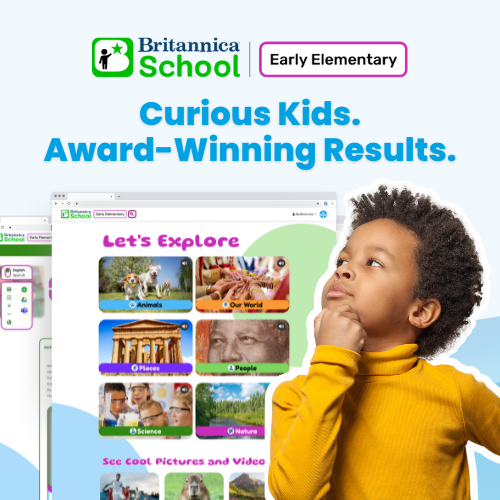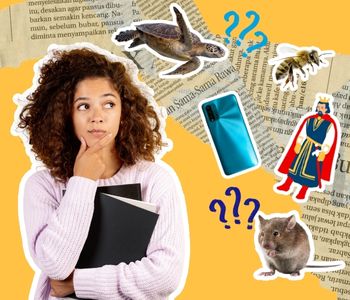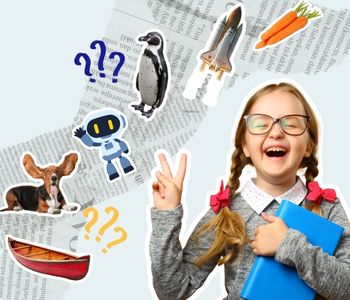
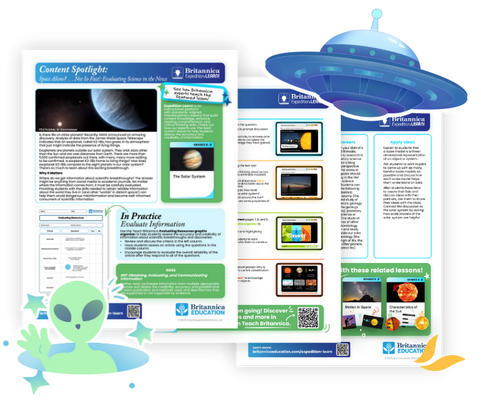
Table Of Contents
Evaluating Science in the News Using Britannica Expedition: Learn!
Is there life on other planets? Recently, NASA announced an amazing discovery. Analysis of data from the James Webb Space Telescope indicates that an exoplanet, called K2-18b, has gases in its atmosphere that just might indicate the presence of living things! But does this discovery prove that space aliens are real?! As researchers, students must be able to develop a coherent and scientifically based view of the world around them. Discoveries like this provide a relevant and fun opportunity to evaluate current scientific discoveries.
That’s where Britannica Expedition: Learn! comes in. Our science lessons and hands-on activities guide students to read and evaluate information from multiple sources and defend a conclusion based on research. Explore how our experts use the featured lesson, The Solar System, to investigate related content and build background knowledge.

Explore how our experts use the featured lesson, The Solar System, to investigate related content and build background knowledge.
Help Students Understand Why It Matters
Our solar system contains eight planets that orbit the Sun. Exoplanets are planets that orbit a star other than the Sun. There are more than 5,000 confirmed exoplanets out there, with many, many more waiting to be confirmed. Is exoplanet K2-18b home to living things? How can we find answers to these questions? Evaluating scientific information and assessing the reliability of claims are essential skills in today’s world.
Where do we get information about scientific breakthroughs? The answer might be anything from social media to academic journals. No matter where the information comes from, it must be carefully evaluated. Providing students with the skills needed to obtain reliable information about the world they live in (and other “worlds” in distant space!) can help them avoid dangerous misinformation and become well-informed consumers of scientific knowledge.
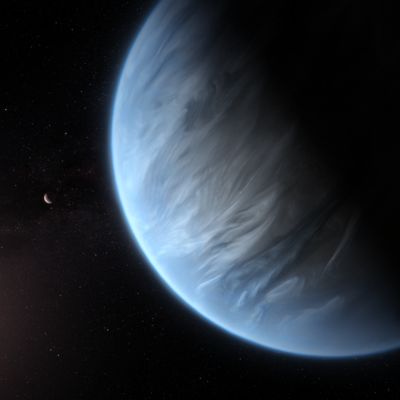
Evaluate Science Concepts
Evaluating information is a foundational skill in science—one that builds critical thinking and deep understanding. With Expedition: Learn!, you can walk students through the process of assessing the credibility of information. The result? Informed students who are empowered to gather information, evaluate credibility, and synthesize information to form a conclusion supported by evidence.
Use the Teach Britannica Evaluating Resources graphic organizer to help students assess the accuracy and credibility of information about scientific breakthroughs and discoveries.

Expedition: Learn! is grounded in decades of research and evidence-based practice. Lessons can be used for whole-class instruction, small-group reteaching, or independent practice. Expedition: Learn! is the perfect solution to help students work toward standards mastery. Each lesson provides standards-based content and assessment items to support your science instruction. Book a demo of Expedition: Learn!

Expedition: Learn! in the Classroom
Check out other ways to use the featured lesson, The Solar System, using our full Content Spotlight that features engaging activities, thoughtful discussion questions, graphic organizers, and more!

About the Author
Molly Rhoadhouse
Science Subject Matter Expert
After working in the field of molecular biology, Molly shifted her career focus to educational publishing. As an independent business owner for more than 20 years, she contributed to a vast number of products for clients such as McGraw Hill, Pearson/Savvas, and Twig Science. Molly joined Britannica in 2021, where she has led the Expedition: Learn science team since its inception. In addition to her degree in Life Science, Molly has a graduate certificate in Instructional Design from the University of Wisconsin.







